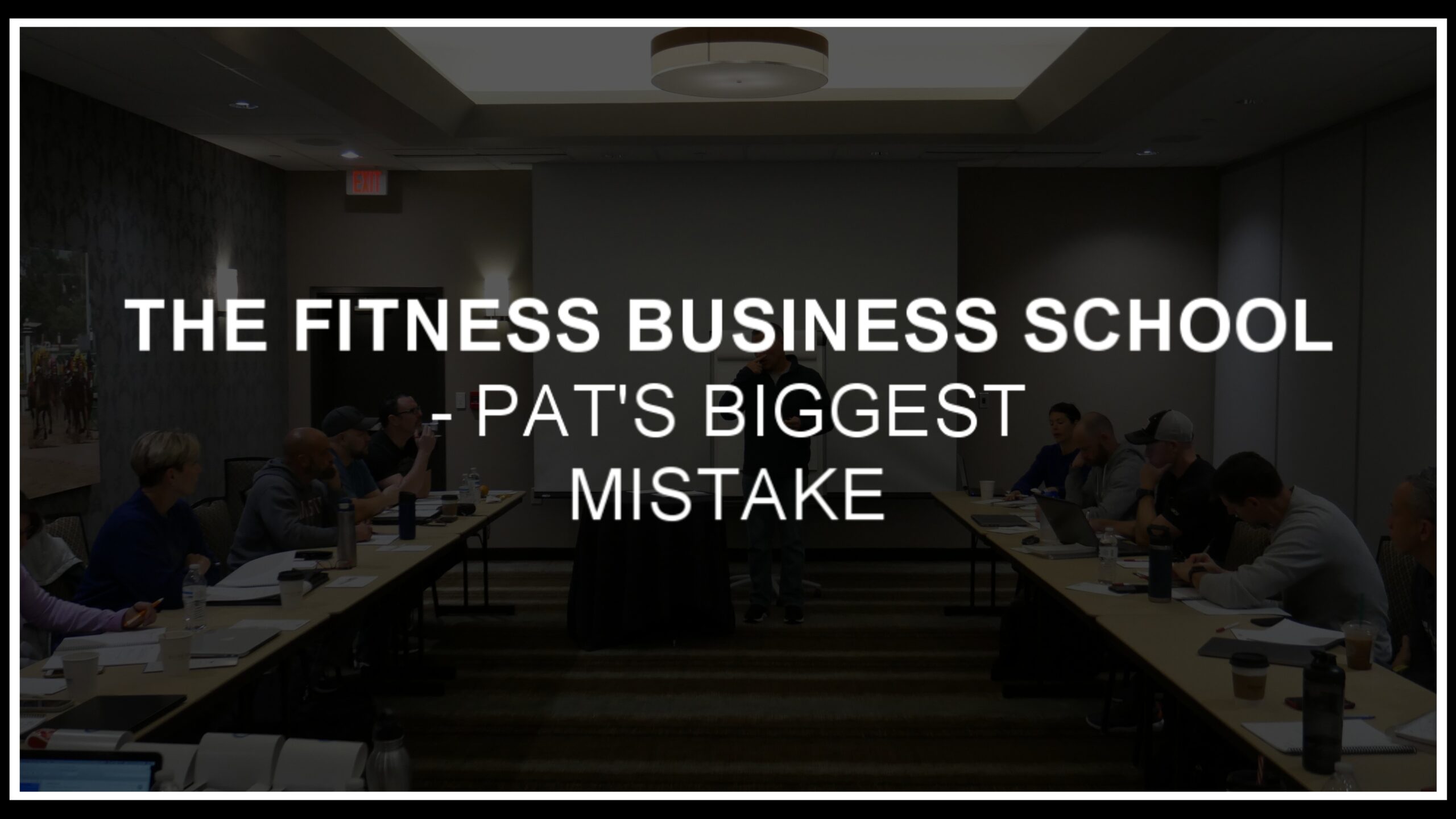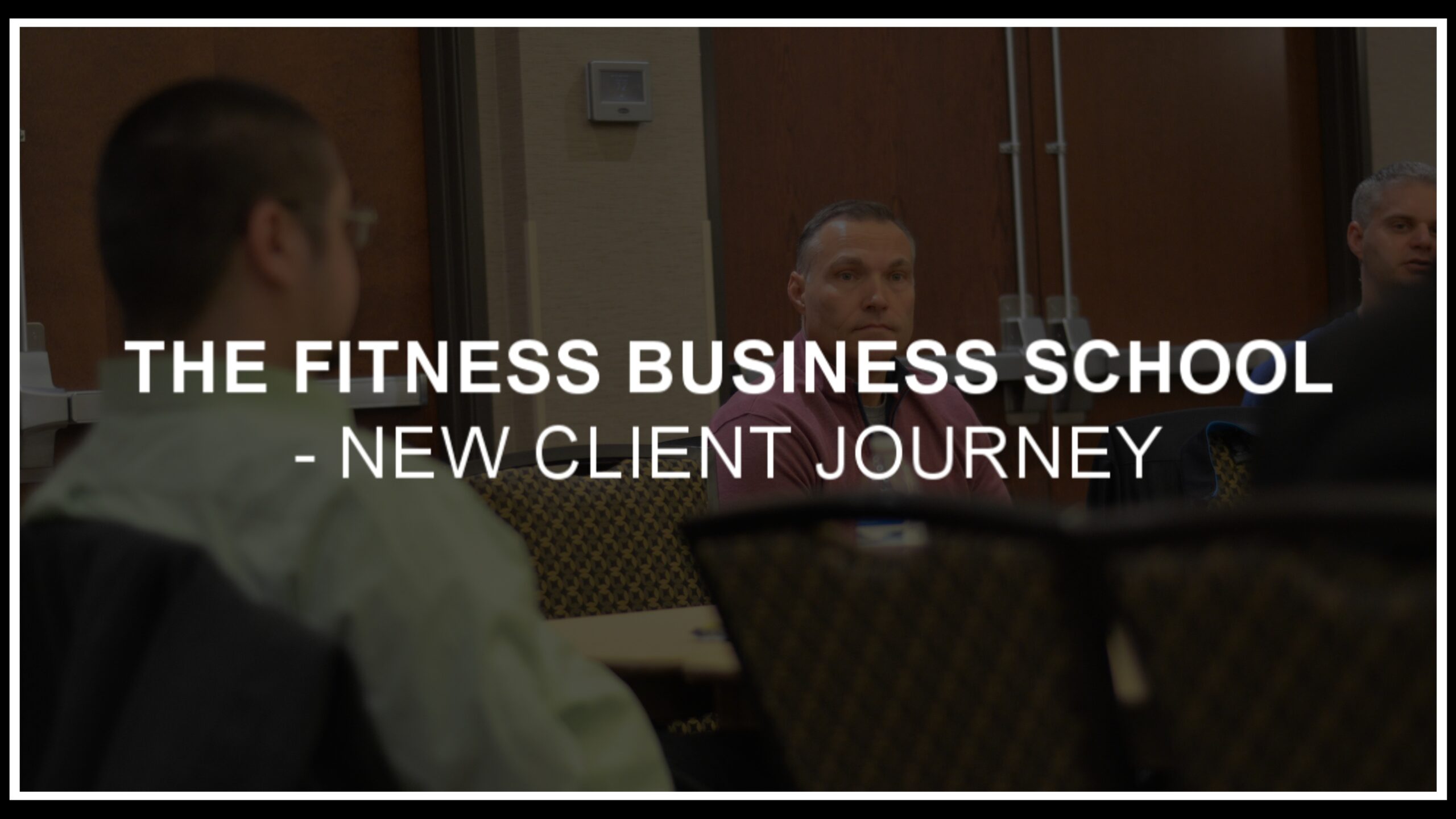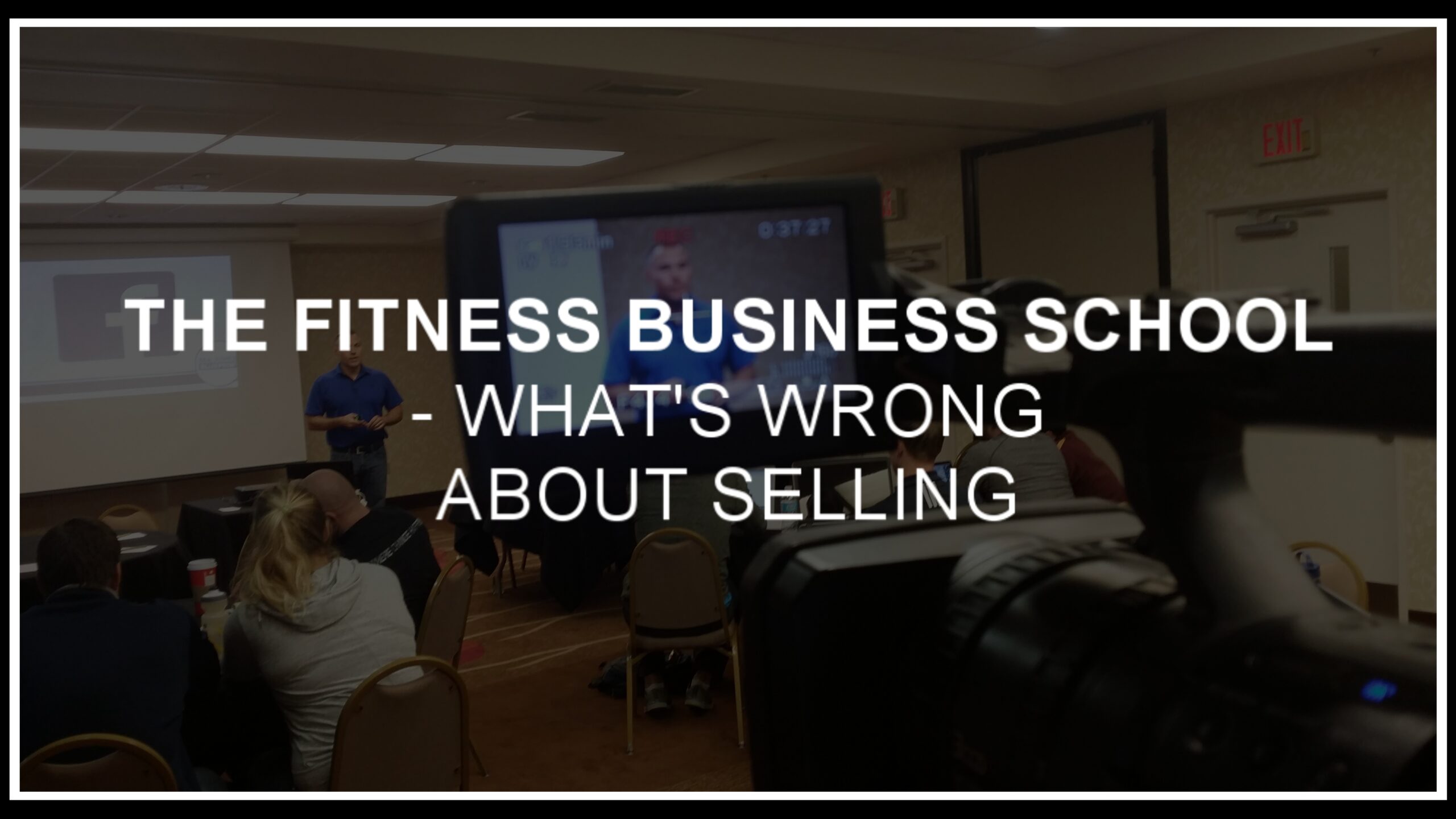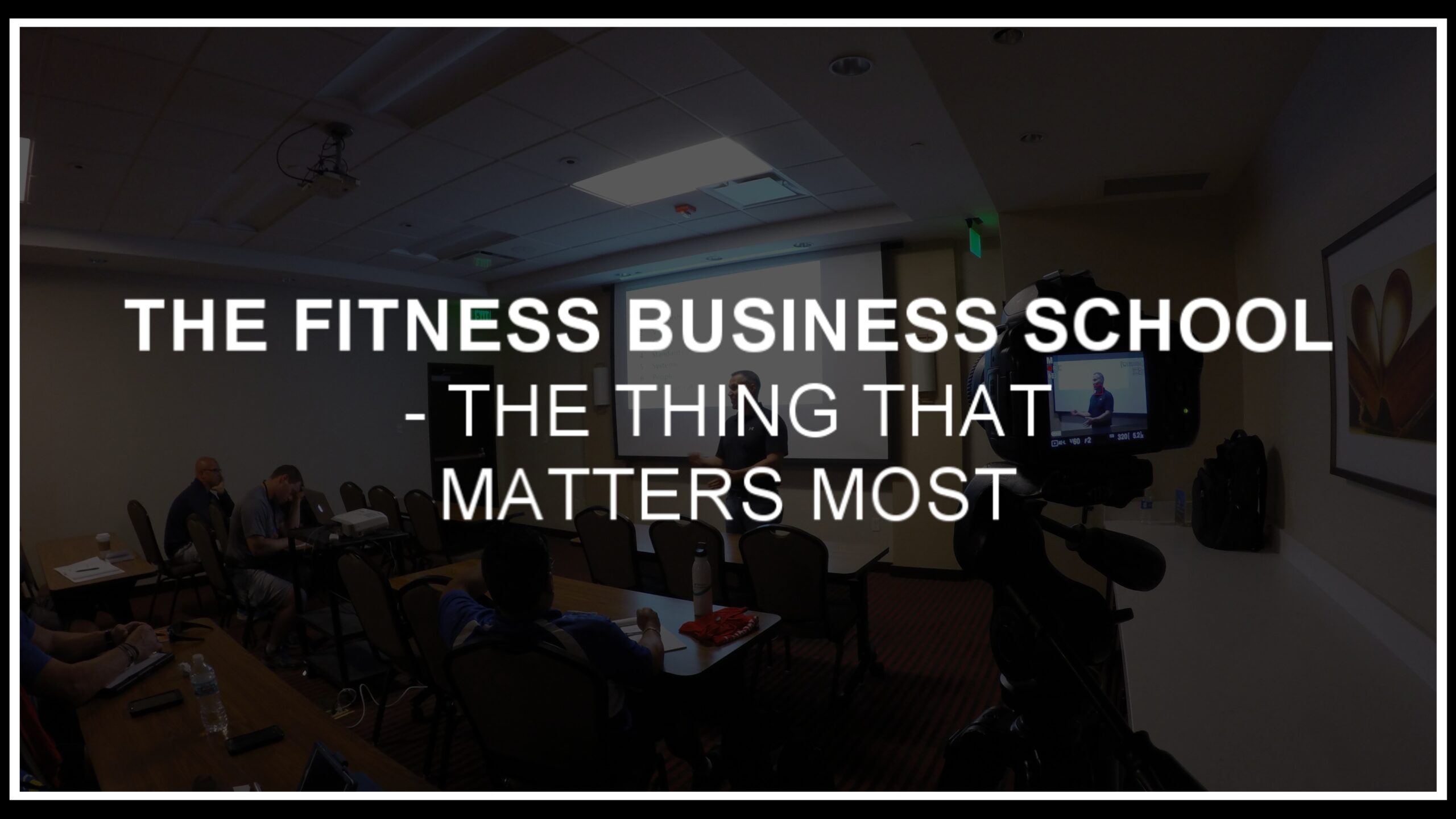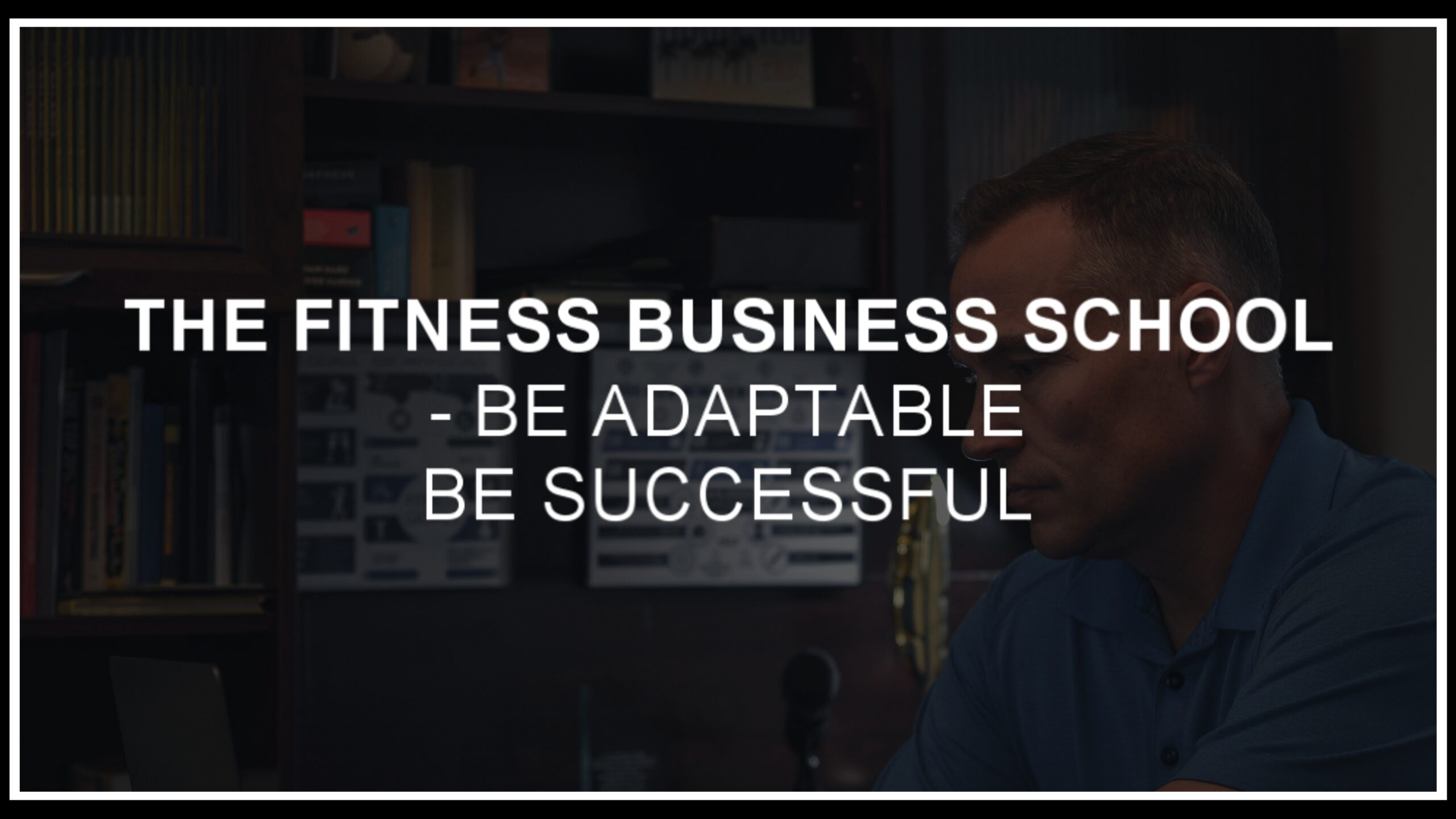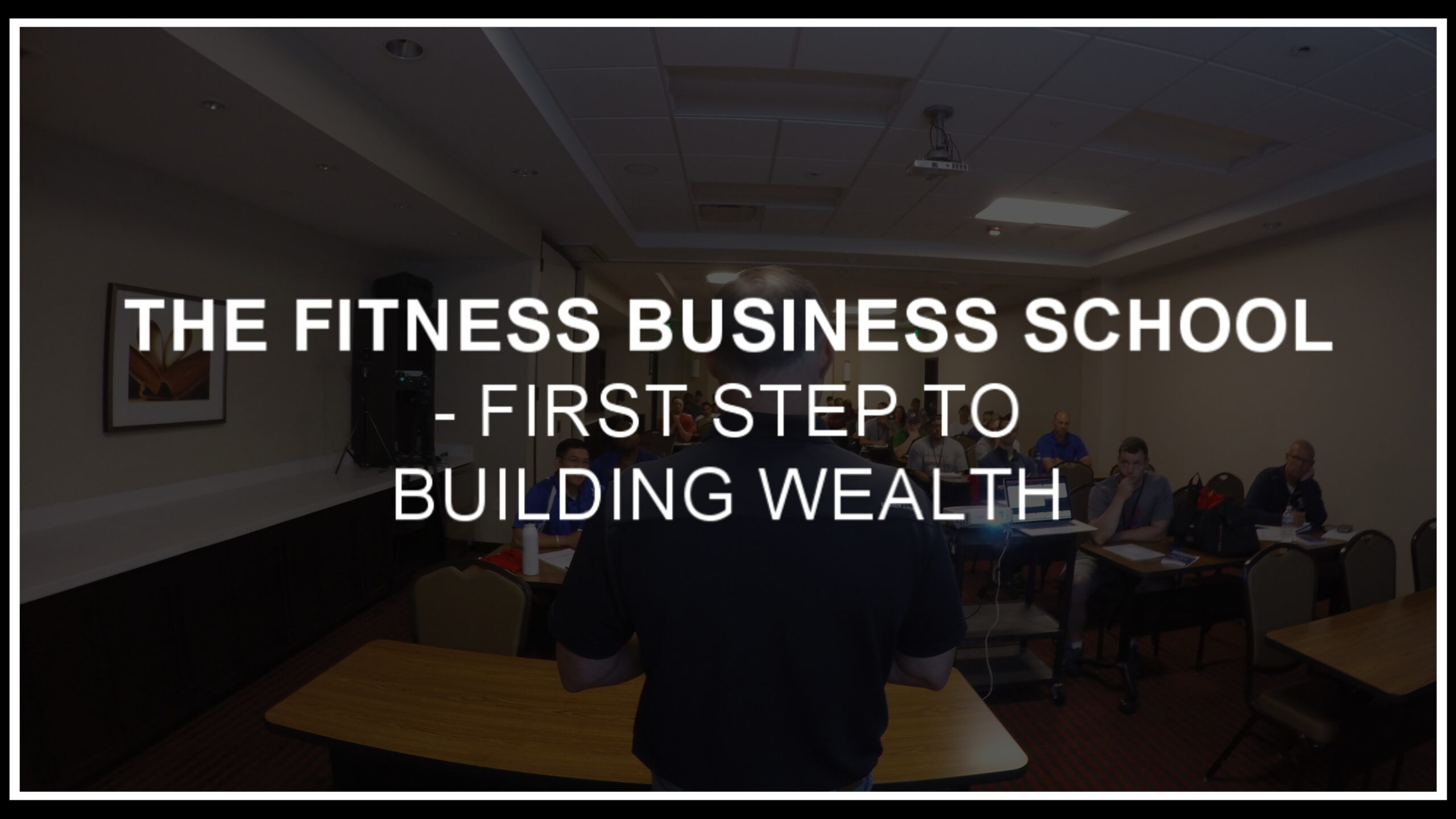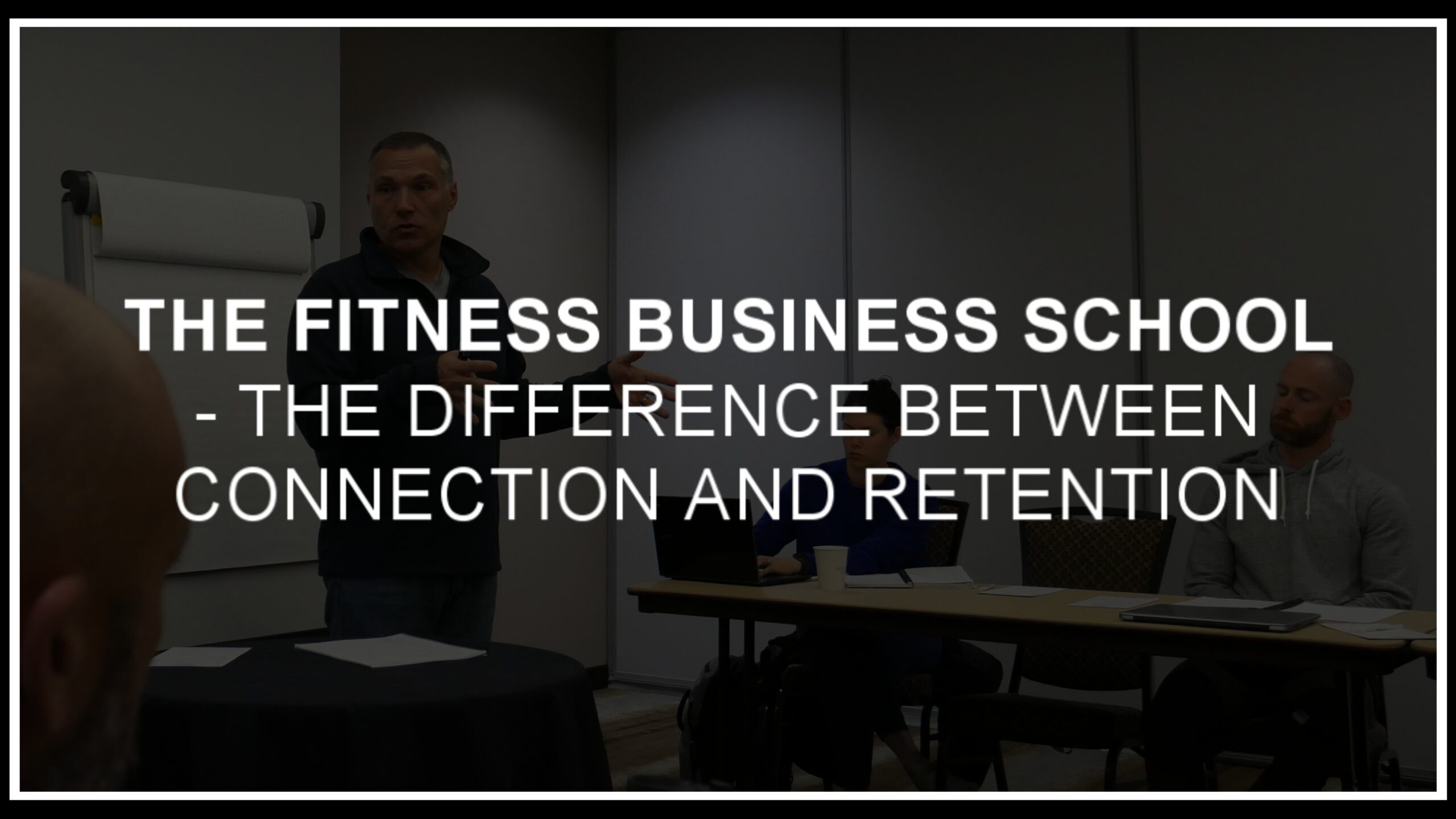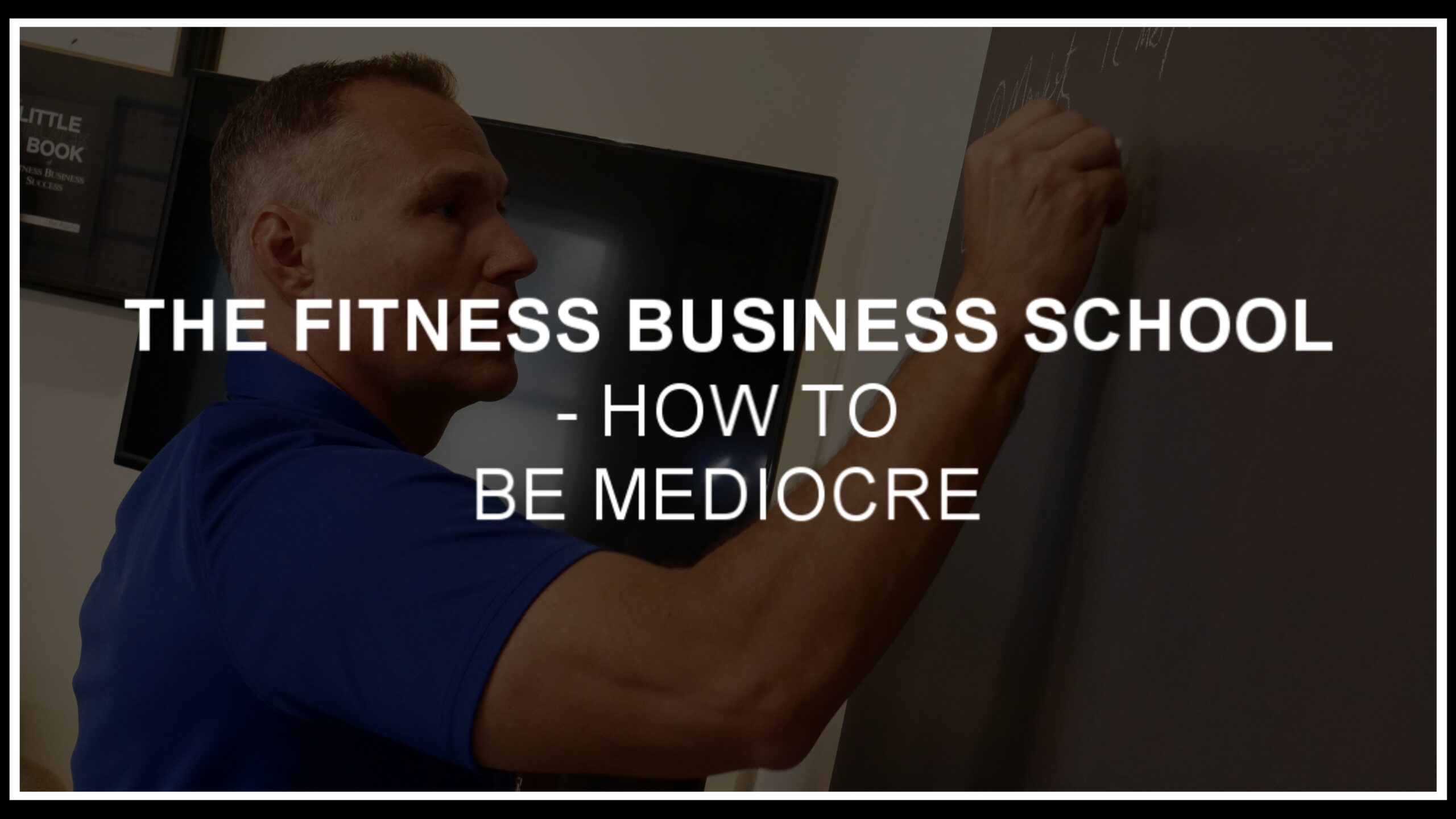Show Notes
00:00 Introduction and Special Guest Announcement
00:38 Holly’s Transition to Client Success Coach
01:54 The Importance of Accountability
04:23 Challenges Faced by Business Owners
06:31 Tips for Business Owners
08:11 Managing Client Success
10:47 The Role of Accountability in Business Growth
14:56 Conclusion and Special Offer
Full Transcript
Hey, Pat Rigsby here and in today’s episode, I’ve got a special guest, ny wife, Holly’s joining me to talk about her current role as our client success coach. Let’s get to it.
Welcome to the Fitness Business School podcast, the show for fitness business owners who want to grow their income, increase their impact and improve their lifestyle. Be sure to listen to the end of this episode because we have a brand new special offer exclusive for listeners. So stay tuned.
All right. We’re here today with my wife, Holly, and. As some people might already know, because I know we touched on it in previous episodes, Holly has transitioned from being entirely focused on her fitness for moms and now just lifestyle for moms, community, and.
Coaching busy moms to spending a lot more time with business owners, both kind of sharing her experiences from working as a coach in the fitness industry for over 15 years to, to also managing client success, onboarding, accountability, and a host of other things that I think have created a completely new and interesting.
Role for her. So I thought I’d have her on and share some of what’s been happening. So welcome Holly. Thank you for having me on today, Patrick. So Holly is the only person on earth. I think that calls me Patrick, or maybe one of two or three. So the new role. So tell us a little bit about your experiences prior to moving more into working as a coach of fitness business owners.
It 100 percent stems from working with moms all these years and recognizing that it’s less about What people need to learn and more about what people need to do. Helping to highlight the fact that we got to take action if we want to get results and with my mom’s over the course of years, this is what I found they wanted more of.
Transformation challenges, workshops, they already have access to this information, but it was more of let’s reframe it. And now what are we going to do about it? And I really enjoyed being able to have a followup process to say, all right, this is what we talked about. So now what’s your, what is going to be your focus this week?
How are you going to make progress and let’s check in at the end of the week. So a lot of accountability, at least, from the coaching side of things, that’s what we call it is accountability. I think the consumers, a lot of times think of it as just, Staying on track, being consistent, not getting derailed.
And the accountability is what kind of facilitates that. Yeah, I think that for us, the individual accountability, I don’t know that it was ever a priority because frankly, we just didn’t have the framework or structure in place to do it well. And I think it certainly made our programs much, much better because.
What she said is entirely true. We definitely have a lot of access to knowing. What to do or having access to resources or education or tools, but the actual consistency of doing is a challenge for business owners. What have been, you’ve been doing this in this role and it’s obviously continued to evolve and expand.
You’ve been doing this with business owners for at least. About six months now. What are your initial observations? Sticking to. What you said you would do is really hard and, wow, is it super easy to get stuck in your head and make things, the word is horribilize, make things worse than what they truly are in reality.
Horribilize. Is that a word? It is now. Yeah. I think that one thing that I recognized a long time ago, and I think this parallels your experience with moms, is the people that I work with, they’re typically not a Future franchisee that’s in grand opening kind of startup mode. They’re business owners that are currently operating.
So they, they already have clients. They already have obligations on their schedule to fulfill. Whatever those clients have paid for. They’ve got the administrative and operational responsibilities that come with being a business. Everything from making sure the bathrooms are clean to making sure that credit cards are updated.
They’re responsible for, and. This doesn’t even scratch the surface on responsibilities that they may have. Personally, most of the people that we work with, they have families. I know we talk a lot about our family and podcasts and emails. And it definitely tends to, the community that we have tends to attract more people who prioritize their relationships with others and families and kids and all that stuff.
They’ve got. Responsibilities and obligations there. And then when they come to us, usually they’re saying, okay, how do I market better? How do I generate more revenue? How do I generate more clients or how do I install the systems and processes that allow me to have what? We’ve coined your ideal business.
I think that what I probably appreciated long ago. And I think that you’ve probably arrived at the same spot is the people that you worked with had full lives and we’re busy and we’re trying to find a way to. Have consistent behaviors that allowed them to reach whatever their personal goals were. And the business owners are the same.
So do you have any tips or suggestions or insights that you think have been really helpful with the owners that you’ve worked with? I think when you were saying that I wanted to share this and it goes right with your question, but I think some of the biggest ahas I’ve had with the business, fitness business owners that I’ve worked with is that they need to take their own advice.
The very advice that they are giving their clients to take it one day at a time, to stay focused, to just do the best you can each day, is the very advice that they give their clients, but yet they fail to follow that themselves. And when I, Be when I begin to help somebody untangle what they’re struggling with when it comes to their business.
And I reflect that back to them. It just clicks. It makes sense. And they’re like, Oh, okay, I get it. And I think that really helps to temper to help them calm down and realize that this is a process. This is a journey. And as long as you are showing up every day, those consistent efforts will absolutely add up to great outcomes and results.
Have you enjoyed this new kind of challenge of we’ve highlighted the accountability piece of it, but of Helping to or leading the facilitation of client success 100 percent I really enjoyed Offering this type of coaching to my mom’s but the volume and the frequency just wasn’t there. So it was enjoyable when I had the opportunity to do it.
But this is something that is now a part of my daily routine and ritual. And I look forward to it every day. Now, one observation that I’ve had since we’ve been doing this is you manage individual accountability with Just a bunch of clients, well over a hundred clients between the high frequency accountability stuff we do in Sprint or the weekly accountability that we do with IBA folks.
And there’s been an observation that I’ve had that you, when somebody doesn’t do well, Really take this personally? Yes, because they invested in this program. They want results. And from the start, when they were initially excited and they want to get going and get things moving forward, when they struggle.
I want to make sure that they are getting the help that they need and realize that this is just a tiny blip. This is temporary. Let’s make sure you get taken care of so you can keep making forward progress. I think that it’s important when you are a part of a group or a program that you have that level of support because it makes a big difference to motivation and momentum.
And I take it personally because I care about the fact that we have created a very unique culture in our community and I want those who are members and participants to look forward to and feel good about their interactions. So that’s one of the challenges you’ve seen people encounter. The times they get stuck, the obstacles, that’s probably one of the things that I’ve tried to unpack for people in previous episodes because I get a lot of questions about how I can write a daily email for 18, 18 years without missing a day.
And that’s, that kind of answers it is every day. Business owners are faced with challenges and if they’re doing it, they’re not alone. It almost never exists in a vacuum. Very rarely do we have somebody that is experiencing something that nobody else Is currently experiencing, has experienced or will experience.
And so it gives me ideas and topics to, to share insights that might be useful for others. And so it’s just this never ending stream of what I would hope are helpful ideas that I can disseminate to a much larger audience. Yeah, I think there’s a lot of benefit in this sort of accountability. And connected approach because they’re getting very immediate, very high touch.
Feedback and have some of that accountability that we just don’t get inherently as a business owner, right? Yes. We’re accountable to our clients. And so we show up for sessions and we do what we’re supposed to do, but when it comes to growing the business or marketing or any of those things, we don’t have that external accountability unless.
We actually opt in for it like people have done here. Whereas if you’re an employee, then you’ve got quotas or deadlines and people who are essentially serving is your accountability facilitators that are the people higher up in your organization. So, it’s an interesting mix.
We want to. Treat people as business owners and be respectful of the fact that in many cases, why they got into business, they wanted more control. They wanted more freedom of choice, more opportunity. But by the same token, we know that people work better with accountability, with deadlines, with structure, that is just it’s.
Just a fact that’s been proven time and time again. Any other takeaways about other things that you’ve been doing? You facilitate all the coaches on the team, providing the sessions that we do. You almost serve as like an offensive coordinator in that sense, where you’re making sure that we’re delivering things to the clients on time as needed in a way that’s going to be valuable to them.
I love that title. I have so many titles by coming to this team and being able to coach in the way I do. I think the other thing I would say is, I look at the deliverables and communication. Because, yes, I also, Help make sure all the coaches are all in the know and following through with the things that we deliver to our clients.
And when I’m looking at the things that are offered, finding multiple ways to inform our members of where things are, reminders and tips on how to take action on those things, because as a business owner, like you’ve said, we’ve got a lot of other things going on and. Being a member in this group, it could feel sometimes like it’s one more thing to do, one more thing to look at.
So I’m always striving to find ways to make it easy for people to get the things that they need when they need to get it. And as much as I let everybody know if you’re, I teach, I say, I teach this to my moms. It’s a two minute do it rule. If you find yourself looking for something or feeling stuck on something for more than two minutes, stop what you’re doing and just reach out and ask.
And I can be that direct line to help connect them to what it is that they need. All right. We’ve unpacked a lot of what you’re doing and frankly, I’m really excited about The accountability piece of our business. I feel and I’m certainly biased, but I think that for years we’ve had the best coaching in the industry.
And I’m not necessarily saying the best instruction or the only system or whatever else, but actual coaching where we’re helping people get from where they are to where they want to go and a high level of concern for people or care, but. Now being able to also integrate what I’m certain is the best accountability in the industry.
I think it’s going to bode well for all of our clients and, in the foreseeable future. So Holly, with that, we will wrap it up here and let you get on with your day. Thanks for joining. Thank you so much.
Thanks for listening to this episode of The Fitness Business School.
Before you go, I have a quick announcement:
One of of the things that we’ve been doing with our current clients is taking them through this Ideal Business diagnostic and really what it is, this checklist that allows you to pinpoint exactly what your business needs next so you can keep improving, keep growing, and build a business that you love to own, one that pays you well, one that allows you to have the impact you wanna have and one that allows you to have a lifestyle that you truly enjoy.
In this diagnostic, we walk through everything and we do an evaluation and can instantly pinpoint what you need to do next to build that business that you want. I’m going to extend this opportunity to get on with either me or my team and take you through this evaluation and fix your business’s most vital needs fast.
So if we take you through this, you’re gonna be able to make those vital changes that you need to finally have what I call your Ideal Business. If you’d be interested in going through this entirely free, risk-free diagnostic with us and learn what you already have in place, what you’re doing well and where are your greatest opportunities for rapid improvement are just shoot me an email with diagnostic in the subject line to [email protected].
Again, an email to [email protected] with diagnostic in the subject line will get
you scheduled and take you through this evaluation to help you build the business you want.


